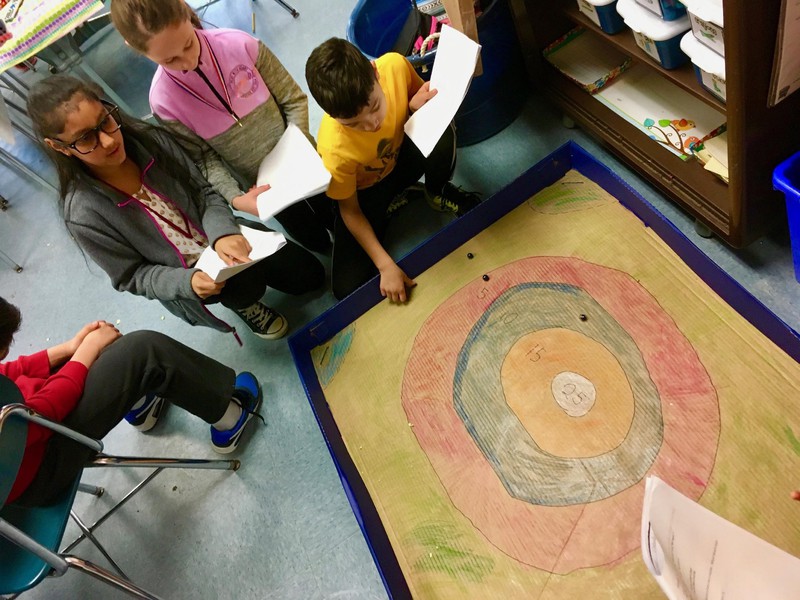
What do baking, playing games and having a birthday party have to do with Grade 4 social studies curriculum? For fourth graders in South Huntington, it was an opportunity to delve deeper into life during colonial times. During a dramatic arts project, which was developed by teaching artist Paul Rodriguez, the children researched and discussed the values held by the colonists. Afterwards, they prepared skits dramatizing those values and comparing them with today's values.
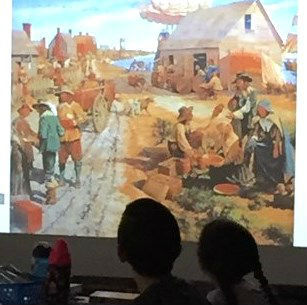
During the first of five sessions, Mr. Rodriguez shared images of colonial times and present day with the fourth graders. He encouraged the students to describe what they saw and to exchange ideas during a brainstorming session. Students observed the differences in clothes, tools, and utilities. For example, the students noted that there were no electric tools during colonial times, while motorized tools are common today. The teaching artist showed an image of colonist trading and asked the children to compare it with a modern image of a New York street vendor. He flipped back and forth between the two photographs. By defining colonial and contemporary times, he provided a knowledge base upon which the students could build.
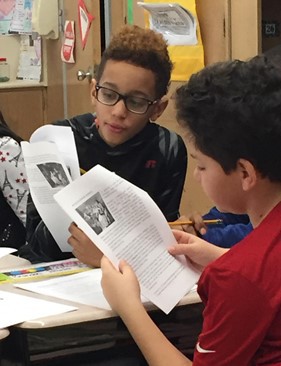
Next, the students undertook a research activity. The class was divided into three groups. The groups were given research packets that would help them prepare a skit about baking a cake, playing a game or having a birthday party. These packets included historical information, key questions and bare-bones scripts for both time periods. To answer the questions in the research packets, students were encouraged to collaborate and share information with others in their groups. The teacher and teaching artist walked around the room, giving the groups support.
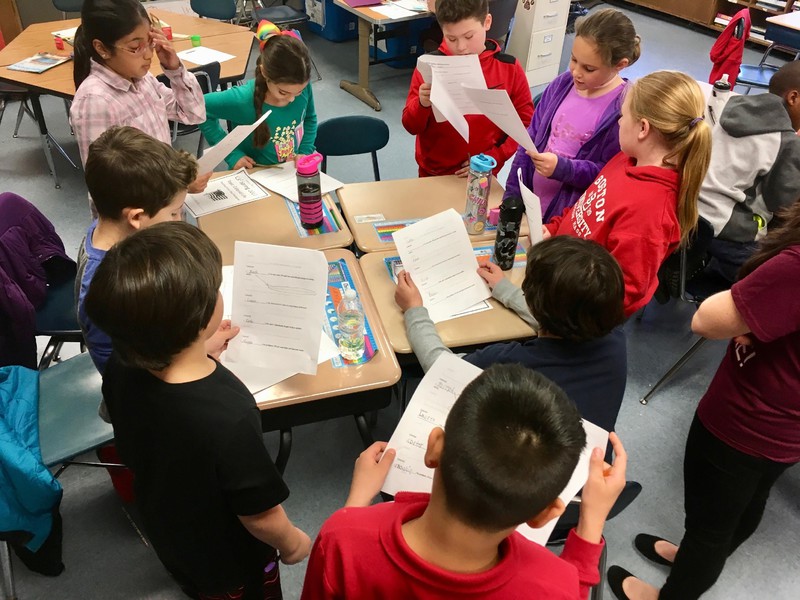
Afterwards, each group reported back to the whole class. Since their classmates knew about the present, the students focused on teaching about the past.
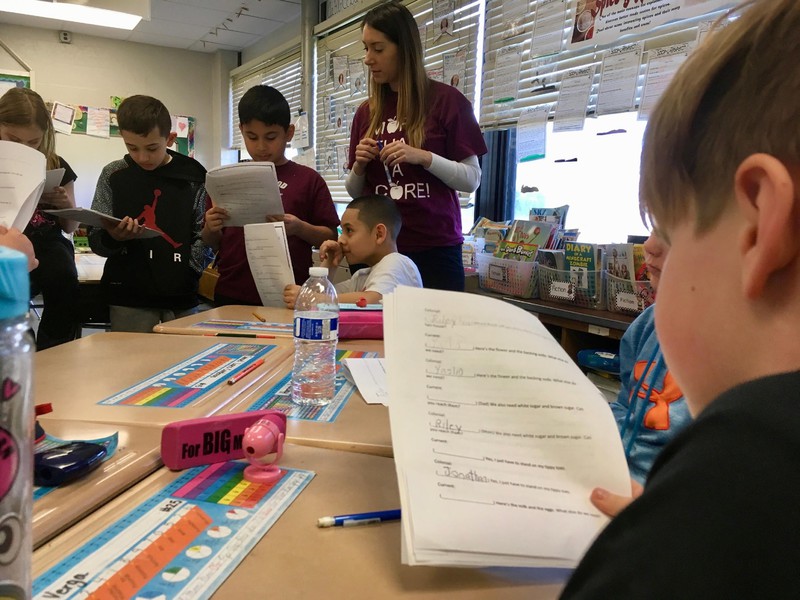
The students were eager to share what they had learned. The cake-making group reported that the first cakes were made by Egyptians. Cakes were a symbol of well-being. The second team reported on marble games. According to the group, the Native Americans were the first people to play marbles. This game emerged because of the availability of rocks and pebbles. As the students shared, Mr. Rodriguez interjected comparison to modern day activities. The third group reported on colonial birthdays.
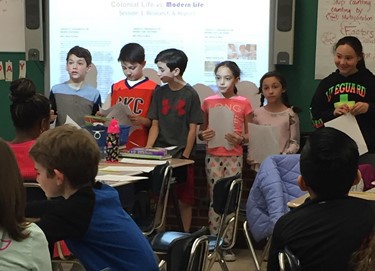
In subsequent sessions, the children developed their plays. The students determined which group members would play the colonial citizens and which members would take on the roles of present day people. The children used works sheets (below) to help create the scripts. The whole group collaborated on the script.
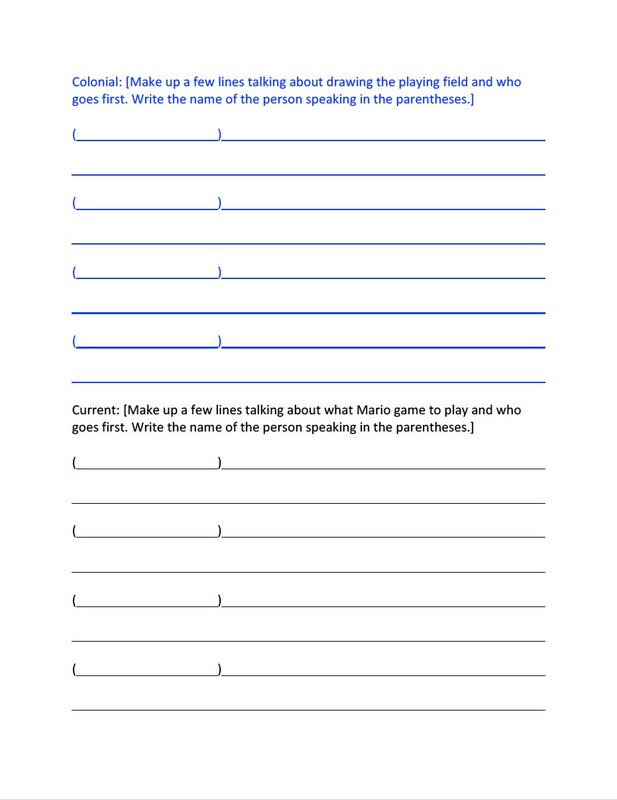
The children prepared simple costumes and created props.
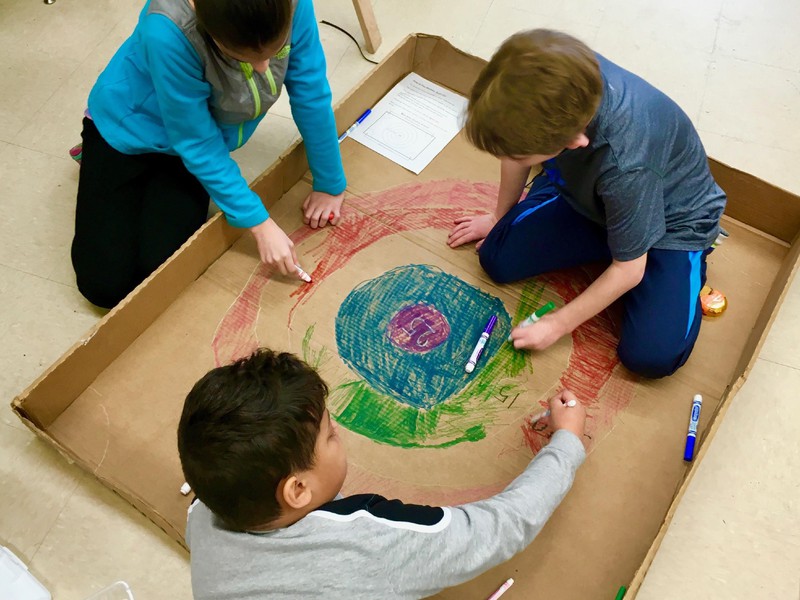
Using paper and cardboard, students created electronics and appliances, like a refrigerator, to illustrate modern life. The project culminated with the students performing their skits.
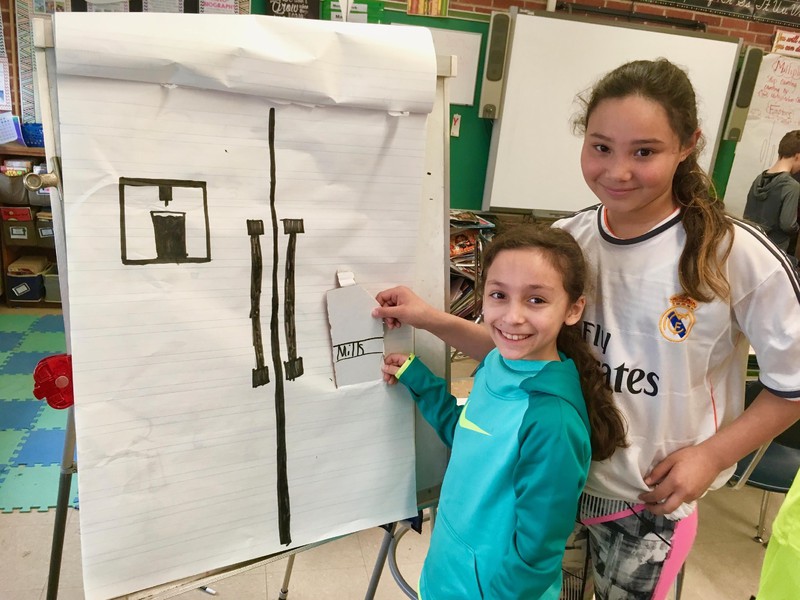
Afterwards, the teachers and fifth graders traveled to Old Bethpage Village (below), where they saw people cooking and children playing games the way they would have in colonial times.
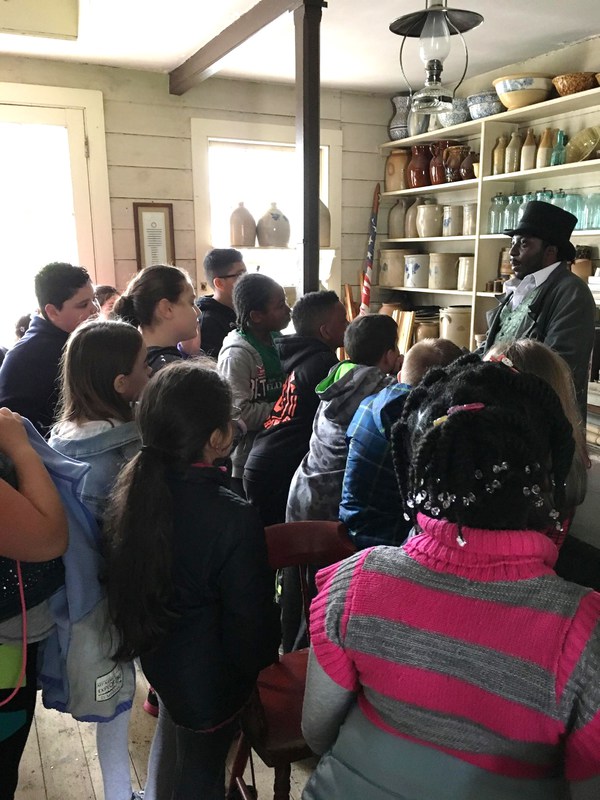
Through the dramatic arts project and subsequent field trip, “the students discovered that people in colonial times and people living today valued experiences that were shared with family and friends,” observed Mr. Rodriguez.